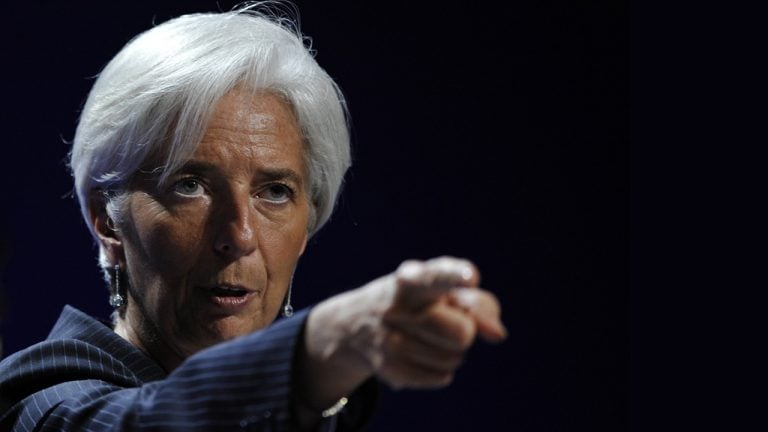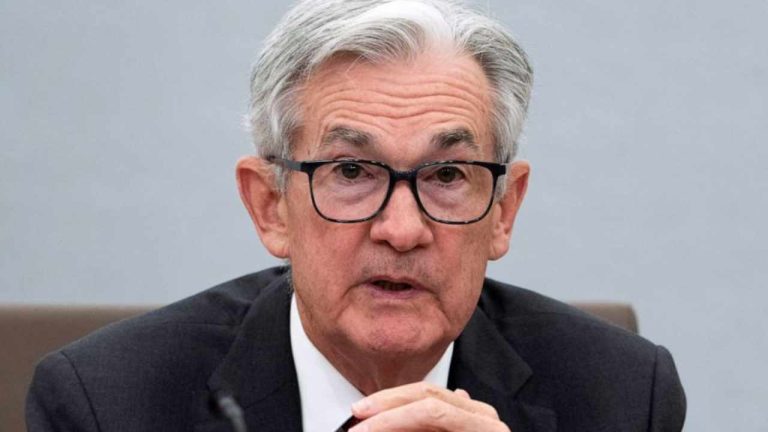 On Thursday, the European Central Bank (ECB) announced the central bank’s third consecutive benchmark bank rate increase this year, raising the rate by 75 basis points (bps). In addition to the rate hike, the ECB changed the central bank’s targeted longer-term refinancing operations terms and conditions noting that they need to be “recalibrated.” ECB Hikes […]
On Thursday, the European Central Bank (ECB) announced the central bank’s third consecutive benchmark bank rate increase this year, raising the rate by 75 basis points (bps). In addition to the rate hike, the ECB changed the central bank’s targeted longer-term refinancing operations terms and conditions noting that they need to be “recalibrated.” ECB Hikes […]
Bulls have a lot of work left to do, say Bitcoin analysts as consolidation enters for BTC price.
Bitcoin (BTC) consolidated gains on Oct. 27 as the highest levels in six weeks gave way to sideways action.

Data from Cointelegraph Markets Pro and TradingView showed BTC/USD circling $20,500 on Bitstamp after reaching local highs of $21,012 the day prior.
The largest cryptocurrency treaded water in line with United States equities at the Wall Street open, with the S&P 500 flat and the Nasdaq Composite Index down around 1% at the time of writing.
The U.S. dollar index (DXY) meanwhile began to claw back losses on the day, providing a headwind to risk assets absent for much of the week. DXY had seen its lowest levels since mid-September.

Ahead of a decision on interest rates by the Federal Reserve, GDP data showed a rebound for the U.S. economy in Q3.
“This [GDP] number is weaker in terms of the signal it sends about the forward strength of the economy than the last one was, even though the headline was positive,” Eric Winograd, director of developed market economic research at AllianceBernstein, nonetheless told the Financial Times.
In Europe, the European Central Bank (ECB) raised key rates by 0.75% as expected.
“Big day today, as the ECB comes in with their policy and GDP numbers from the U.S.,” Michaël van de Poppe, founder and CEO of trading firm Eight, summarized.
“Honestly, Bitcoin remains calm at these levels, would have expected a more significant correction since the last push.”
The latest data from CME Group’s FedWatch Tool put the odds of the Fed copying the 0.75% hike at 90.8% on the day.

Analyzing the weekly BTC/USD chart, popular trader Rekt Capital highlighted the zone immediately below $22,000 as an important one to reclaim should bullishness continue.
Related: A record 55,000 Bitcoin, or over $1.1 billion, was just withdrawn from Binance
“BTC is slowly approaching the red resistance area,” he wrote in an update on Oct. 26.

Fellow analyst Il Capo of Crypto meanwhile said that $21,500 would need to form the basis for consolidation should bulls want to see $23,000 materalize.
His “main scenario” remained a reversal to new macro lows for BTC/USD, these potentially hitting $14,000.

The views and opinions expressed here are solely those of the author and do not necessarily reflect the views of Cointelegraph.com. Every investment and trading move involves risk, you should conduct your own research when making a decision.
 While the euro has found support between 0.96 to 0.97 nominal U.S. dollars per unit, foreign exchange (FX) strategists from Citi believe the euro could tap a low of around $0.86 against the greenback. While the dollar slumped on October 13, the fiat currency is rising again and market strategists from Citi argue that the […]
While the euro has found support between 0.96 to 0.97 nominal U.S. dollars per unit, foreign exchange (FX) strategists from Citi believe the euro could tap a low of around $0.86 against the greenback. While the dollar slumped on October 13, the fiat currency is rising again and market strategists from Citi argue that the […]
The ECB’s two-year investigative phase is halfway completed, with key use and policy issues clarified; more stakeholder engagement is planned before the decision is made to proceed.
The European Central Bank (ECB) Eurosystem digital euro project’s two-year investigative phase has reached its halfway point. The ECB published a progress report Sept. 29 that looked at design and policy issues that are under consideration or have been decided.
The report said commerce in physical stores and online is the biggest use case for a euro central bank digital currency (CBDC). Currently, most digital payment solutions are limited in reach and not of European origin. Thus, a digital euro could harmonize payment solutions and strengthen European strategic autonomy, in line with policy goals. The report said:
“A digital euro would preserve the role of public money as the anchor of the payments system in the digital age. It would ensure the smooth coexistence, convertibility and complementarity of the various forms that money takes.”
The ECB Governing Council has approved exploration of online payments validated by a third party as part of a first digital euro release, as well as an offline peer-to-peer validated solution with no timeline. Online peer-to-peer solutions will not be pursued further in this phase.
Related: European Central Bank chooses Amazon and 4 other firms to prototype digital euro app
Anti-Money Laundering requirements and the desire to limit the CBDC’s use in investments prevent the full anonymity of a digital euro, but the report suggested a digital euro would have privacy provisions similar to current digital payment options, with potentially greater privacy for low value and low-risk transactions.
The digital euro will restrict large holdings and be designed to limit its use as an investment tool, due to financial stability considerations. The Governing Council has approved a waterfall mechanism that could transfer digital euro holdings above the limit to a commercial bank account. An offline holding limits may also be imposed. A “wide set of tools” will be incorporated into the design to respond to future financial conditions.
The European Commission will propose a regulation to establish the digital euro in the first quarter of 2023. The Governing Council will decide in October 2023 whether to move on to development and testing. That phase may last around three years.
In a statement in front of the EU Parliament, ECB board Panetta confirmed that the ECB’s Governing Council has now endorsed a first set of foundational design choices for the digital euro.
— Patrick Hansen (@paddi_hansen) September 29, 2022
He mentions these two explicitly:
The progress report looked exclusively at a retail CBDC. ECB executive board member Fabio Panetta recently discussed the possibility of creating a wholesale digital euro for use by banks and financial institutions. Panetta summed up progress on the digital euro in his quarterly presentation to the Committee on Economic and Monetary Affairs of the European Parliament also on Sept. 29.

Crypto industry is coming to save the troubled Euro monument in Frankfurt after traditional banks refused to support the symbol of Eurozone decision-making.
The paths of traditional finance and the cryptocurrency industry have intersected again, with a crypto startup coming to save the iconic Euro monument in Frankfurt.
Frankfurt-based crypto startup Caiz Development will provide 1 million euros, or about $961,000, in funding over the next five years to rescue the famous Euro sculpture.
Announcing the news on Tuesday, Caiz said that the firm saw a good marketing opportunity in supporting the sculpture by obtaining unique exposure.
Through the funding, the firm was able to put its product board next to the 14-meter-high euro sign bearing 12 yellow stars, which represent the original members of the currency union.

The iconic Euro statue was erected in 2001 in front of the former European Central Bank headquarters to celebrate the introduction of the euro and has since become a symbol of Eurone decision-making. The monument has come under trouble in recent years as it has been frequently vandalized, causing the Frankfurt Culture Committee to spend some 250,000 euros every year to keep the sign in a proper condition.
The committee sought sponsorship support from 110 banks in order to save the sculpture, but none of them wanted to support the famous Euro sign. Committee chairman Manfred Pohl said that 90 of the banks didn’t even bother answering, while those 8 who responded did not provide enough funds to save the sign.
“This symbol is a part of the identity of the city of Frankfurt. I cannot understand that in Frankfurt, we must beg for money,” Pohl said.
Related: GBP follows euro: The pound-dollar rate hits all-time low
Now, the iconic monument is saved thanks to the cryptocurrency industry, which is often very skeptical about the existing fiat currency system. Caiz CEO Joerg Hansen admitted that the cryptocurrency industry often opposes government-backed centralized currencies to decentralized cryptocurrencies.
“Our first reaction when we heard the sign was in danger was we couldn’t believe the city or the banks weren’t really interested in it,” Hansen said. “With how often this sign gets photographed, we said ‘Look, this is an absolute no-brainer’,” he stated.
 Federal Reserve Chairman Jerome Powell says decentralized finance (defi) has “very significant structural issues,” emphasizing a “real need” for more appropriate regulation of the defi ecosystem. Fed Chair Jerome Powell on Defi Regulation Federal Reserve Chairman Jerome Powell talked about the regulation of decentralized finance (defi) Tuesday during a panel discussion on digital finance hosted […]
Federal Reserve Chairman Jerome Powell says decentralized finance (defi) has “very significant structural issues,” emphasizing a “real need” for more appropriate regulation of the defi ecosystem. Fed Chair Jerome Powell on Defi Regulation Federal Reserve Chairman Jerome Powell talked about the regulation of decentralized finance (defi) Tuesday during a panel discussion on digital finance hosted […]
Executive board member Fabio Panetta says it would undermine financial stability if the ECB were unprepared to use distributed ledge technology, but that’s the best he can say for it.
The European Central Bank (ECB) needs a wholesale central bank digital currency (CBDC) because market players expect it, ECB executive board member Fabio Panetta told a banking symposium in Germany on Monday. Two options for wholesale CBDCs are currently under consideration.
Wholesale CBDC is not a new concept, Panetta said. Eurosystem’s Target2 uses a centralized CBDC, strictly speaking. Target2 is a real-time gross settlement system in use since 2017 that also provides a securities settlement platform and an instant payment settlement service. Despite this, banks and financial market institutions continue to explore distributed ledger technology (DLT), Panetta said.
The digitalisation of finance has broadened payment options, with emerging fintechs, big techs and cryptos causing disruptions, says Executive Board member Fabio Panetta at the @bundesbank. We need to preserve an anchor of stability for the monetary and payments systems.
— European Central Bank (@ecb) September 26, 2022
1/4 pic.twitter.com/Fo9xQtHLZo
If Target2 is difficult to use, market players will turn to commercial bank money and stablecoins, Panetta continued. That would undermine financial stability by fragmenting trading and liquidity and removing central bank money from the process. Besides, stablecoins “are stable in name only.”
Related: European Central Bank bets on CBDCs over BTC for cross-border payments
While he saw the potential for DLT to improve pieces of the settlement system, Panetta considered CBDC’s advantages over existing technologies unproven. Cost optimization may be possible at times too, Panetta said, but he still had concerns:
“Importantly, the governance of major DLT technologies and networks is dominated by actors who are either unknown or based outside Europe, which raises concerns about strategic autonomy.”
Panetta acknowledged the need for an ECB CBDC with little enthusiasm:
“Despite the uncertainties surrounding DLT’s potential, we want to be prepared for a scenario where market players adopt DLT for wholesale payments and securities settlement.”
The ECB is considering two options for integrating DLT and Target services. The first is to create a bridge between DLT platforms and central bank infrastructures. That course of action would probably be faster to implement than the option of creating “DLT-based wholesale settlement service with DLT-based central bank money.”
Market conditions would be the deciding factor, Panetta said.
The ECB has weighed the virtues of CBDC v. Target2 before. Target2 is broadly comparable with the proposed FedNow system that has been under consideration in the United States since 2019.
 On Friday, the official fiat currency of 19 out of the 27 member states of the European Union (EU), the euro, plunged to a low of $0.9732 against the U.S. dollar. The drop comes at a time when fiat currencies like the yen, yuan, and pound have struggled against the greenback during the past six […]
On Friday, the official fiat currency of 19 out of the 27 member states of the European Union (EU), the euro, plunged to a low of $0.9732 against the U.S. dollar. The drop comes at a time when fiat currencies like the yen, yuan, and pound have struggled against the greenback during the past six […] The European Central Bank (ECB) has selected five companies to help develop user interfaces for a digital euro. Each company will work with the ECB and focus on one specific use case of the digital euro. Amazon has been chosen to focus on e-commerce payments. ECB Collaborates With 5 Companies on Digital Euro The European […]
The European Central Bank (ECB) has selected five companies to help develop user interfaces for a digital euro. Each company will work with the ECB and focus on one specific use case of the digital euro. Amazon has been chosen to focus on e-commerce payments. ECB Collaborates With 5 Companies on Digital Euro The European […]
The five fintech, payments and e-commerce firms will create front-end prototypes for the digital euro, which will not be used in later phases of the CBDC project.
The European Central Bank, or ECB, has announced it will be collaborating with five companies for the development of potential digital euro user interfaces.
In a Friday announcement, the ECB said it had chosen "Big Four" tech company Amazon, fintech firm Nexi, Spanish digital bank CaixaBank, French payments platform Worldline and the European Payments Initiative, or EPI, to each focus on developing a prototype based on specific use cases of the digital euro. According to the central bank, the firms will create front-end prototypes, which will not be used in later phases of the digital currency project.

The ECB chose the five companies based on their fulfilling “specific capabilities” when compared to 50 other front-end developers that responded to the central bank’s call in April. Officials planned the project to be completed in the first quarter of 2023 as part of a two-year investigation phase into the digital euro, expected to end in October 2023.
Related: Digital euro could come as soon as 2026 — ECB official
As interest in central bank digital currencies seems to be growing globally, ECB officials have been exploring the potential impact of a digital euro on Europe while being vague about if or when the bank could release a CBDC. The central bank commissioned a series of focus groups on digital payment methods in September 2021, which suggested that using digital currency at online and physical stores could be a key feature of a digital euro. An earlier public consultation also suggested that privacy was considered “the most important feature of a digital euro by both citizens and professionals.”